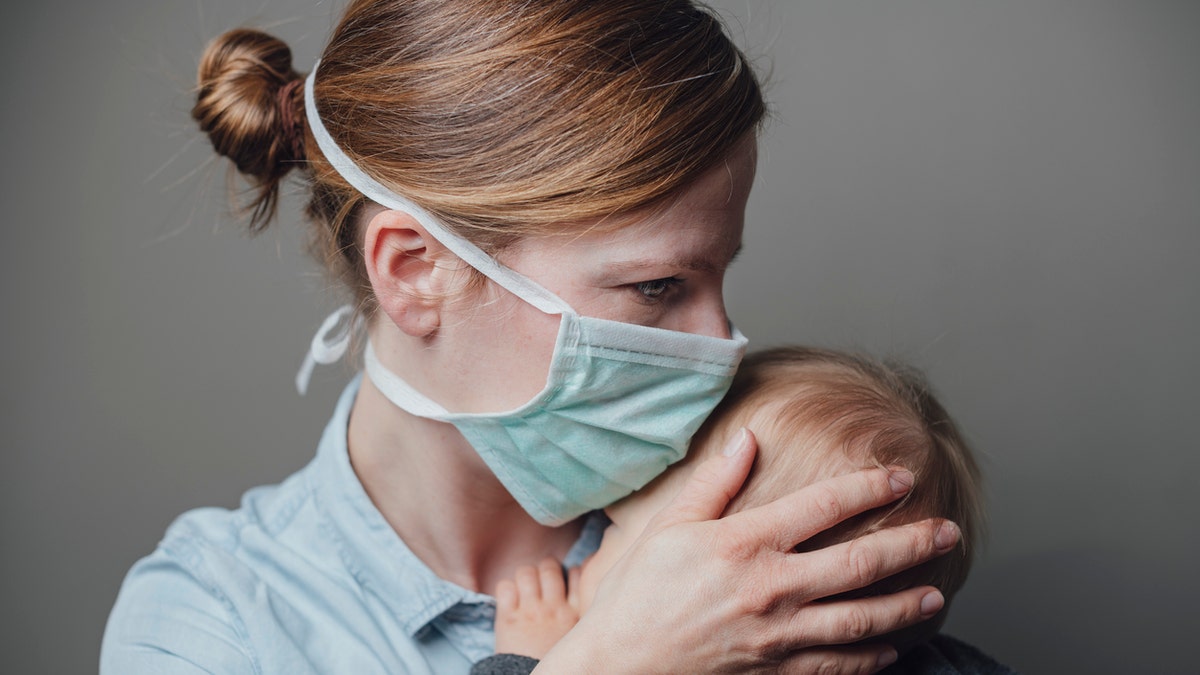Fox News Flash top headlines for August 3
Fox News Flash top headlines are here. Check out what's clicking on Foxnews.com.
Recent CDC data shows coronavirus infections from the delta COVID-19 variant have continued to rise in the U.S. and this fact might leave travelers wondering if it’s worth taking vacations they had planned.
Depending on your household’s circumstances, suspending travel could be an ideal option, a worthwhile consideration or an unneeded step, according to medical experts.
"There are no one-size-fits-all answers," Dr. Brad Younggren, the chief medical officer at 98point6 Inc. – a text-based primary care app, told Fox News.
He went on, "Each family should consider their risks and weigh them against the potential benefits of travel, applying their personal level of risk tolerance."
CDC, STATE DEPARTMENT, ISSUE HIGHEST WARNINGS AGAINST TRAVEL TO UK OVER RISE IN COVID CASES
Younggren noted that families who have members with "high personal risks," including age, immune suppression or underlying severe illness, should be thought of before making a move to cancel or proceed with travel arrangements.

Dr. Brad Younggren, the chief medical officer at 98point6 Inc., tells Fox News that travelers need to consider the health risks of their group before they follow through on plans. (iStock)
Travelers should also look into the current infection rates of their desired travel destination and be aware of potential vaccination requirements and other COVID-19 policies ahead of departure, according to Younggren.
Knowing these details in advance will help travelers determine if they are "prepared and comfortable" with going through with their trip, Younggren said.
Some locations may have mandates in place that require travelers to wear masks outdoors and or indoors.
NEW CORONAVIRUS VARIANTS SEEN AS TOO CONTAGIOUS FOR HOTEL QUARANTINES
Travelers should take "general COVID safety" precautions of their own "to remain safe while vacationing," Dr. Kate Tulenko, the founder and CEO of Corvus Health – a global health systems and health workforce services firm, told Fox News.
Common precautions include practicing hand hygiene, social distancing and wearing protective face masks in "crowded indoor areas or high-risk situations," according to Tulenko.
"Vaccinated low-risk people and unvaccinated low-risk people who are taking standard precautions…can most likely continue their plans," she added.

Dr. Kate Tulenko, the founder and CEO of Corvus Health, tells Fox News that vaccinated and unvaccinated people who are considered "low-risk" can pursue their travel plans, but they should still take precautions to guard themselves from COVID-19. (iStock)
Tulenko told Fox News that some unvaccinated people who wish to enjoy travel in the near future could benefit from speaking with their physician about potential vaccination, so they can move throughout the world with a level of protection.
6 PEOPLE TEST POSITIVE FOR COVID-19 AFTER CARIBBEAN CRUISE
But, for people who are considered "high risk," Tulenko recommended against travel regardless of their vaccinations. At this time she’s suggested high-risk groups, "seriously consider rearranging their plans."
"Regarding canceling your reservations, many airlines and hotel chains are allowing cancellations and giving credit for future travel," Tulenko said. "Due to the fact that many people are not traveling internationally, it is usually easy for a domestic hotel to fill the vacancy once you have canceled."
While each person is responsible for determining the level of risk they’re willing to take, Tulenko reiterated that "people should consider the health risk of everyone in their group, including the people they will be visiting."
CLICK HERE TO GET THE FOX NEWS APP
Younggren noted that COVID-19 vaccines for children under the age of 12 aren’t available yet and likely won’t be "until potentially late fall to early winter."

Dr. Brad Younggren noted that COVID-19 vaccines for children under the age of 12 aren’t available yet. Currently, the CDC advises mask wear and social distancing for unvaccinated children who are put into public settings. (iStock)
Parents can take precautions against the novel coronavirus and its "emerging variants," by following CDC recommendations for children over the age of 2, Younggren said.
Currently, the CDC advises mask wear and social distancing for unvaccinated children who are put into public settings.
CLICK HERE TO SIGN UP FOR OUR LIFESTYLE NEWSLETTER
"Not all trips are created equal. If this is a rare or one-time-only event, compared to something that can easily be rescheduled, it is legitimate to consider the risk versus benefits," Younggren concluded. "COVID-19 is likely to be with us for many years, and we will all need to get used to weighing the risk of disease against some social or personal benefit."






















